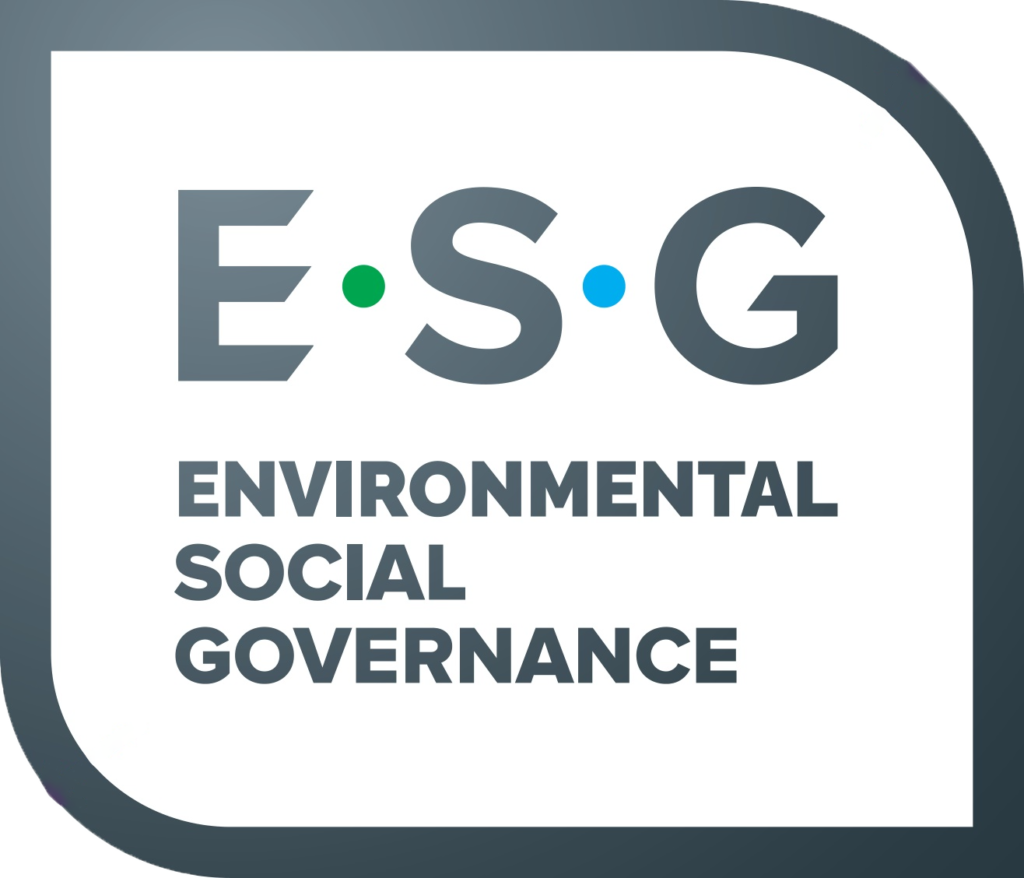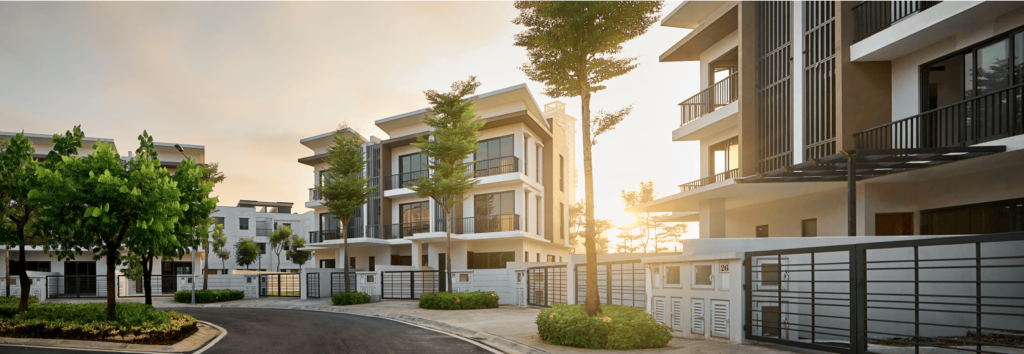
Sustainable Development
Sustainable Development
Gamuda Green Plan
As a responsible developer, we pledge to conduct our business in a sustainable manner by tackling climate change and establishing limits to our carbon emissions.
Gamuda Green Plan is a comprehensive
roadmap that charts tangible targets driven on environmental, social and governance (ESG) dimensions set forth over the next five to ten years. This plan commits Gamuda Bhd, including subsidiaries like Gamuda Land, to circular construction with specific steps to reduce direct and indirect greenhouse gases emission intensity by 30% in 2025, and by 45% in 2030.
Overview
- Sustainable Planning
and Design - OUR COMMUNITY
- Environmental
& Biodiversity Conservation - DIGITAL IBS
and Design
Sustainable Planning and Design
For our developments and townships, we will achieve a 40% reduction in CO2e emissions compared to BAU by 2030 via:
 35% reduction in urban planning emissions with sustainable masterplanning, shared facilities and green features.
35% reduction in urban planning emissions with sustainable masterplanning, shared facilities and green features.
 10% reduction in transport emissions with green transport mobility plans, development of a low carbon transport ecosystem with our EV ready townships and establishment of 250km of cycling and pedestrian networks by 2025.
10% reduction in transport emissions with green transport mobility plans, development of a low carbon transport ecosystem with our EV ready townships and establishment of 250km of cycling and pedestrian networks by 2025.
 40% reduction in non renewable energy use from efficient cooling systems, smart features, solar street lighting and renewable energy (RE).
40% reduction in non renewable energy use from efficient cooling systems, smart features, solar street lighting and renewable energy (RE).
 65% reduction in freshwater demand from recycling lake water for irrigation, rainwater harvesting and water saving devices.
65% reduction in freshwater demand from recycling lake water for irrigation, rainwater harvesting and water saving devices.
 50% reduction in landfill waste with extensive recycling, food maceration and composting.
50% reduction in landfill waste with extensive recycling, food maceration and composting.

Circular Construction
For our construction and operations, we commit to reduce Scope 1 (direct emissions) and Scope 2 (indirect emissions from electricity consumption) emissions intensity by 30% by 2025 and 45% by 2030 via:
 Enabling supply of renewable energy (RE) for our offices, project sites and assets via solar installations, with a 100% renewable energy (RE) utilisation target by 2025 via a combination of direct on site feed in supply complemented by off site renewable energy (RE) trading and purchase mechanisms.
Enabling supply of renewable energy (RE) for our offices, project sites and assets via solar installations, with a 100% renewable energy (RE) utilisation target by 2025 via a combination of direct on site feed in supply complemented by off site renewable energy (RE) trading and purchase mechanisms.
 Reducing energy use by increasing efficiency of our M&E systems via sustainable procurement including introduction of a group wide HVAC minimum efficiency guideline, retrofitting where necessary and implementation of smart building systems.
Reducing energy use by increasing efficiency of our M&E systems via sustainable procurement including introduction of a group wide HVAC minimum efficiency guideline, retrofitting where necessary and implementation of smart building systems.
 Transitioning our fleets to low carbon alternatives where feasible.
Transitioning our fleets to low carbon alternatives where feasible.
 Improving productivity and adopting a circular construction approach by maximising the efficiency of raw materials and resources, reducing wastage and advocating sustainability throughout our operations committing to a reduction of construction waste to landfill of 20% and recycling of 50% of water at our construction sites by 2025.
Improving productivity and adopting a circular construction approach by maximising the efficiency of raw materials and resources, reducing wastage and advocating sustainability throughout our operations committing to a reduction of construction waste to landfill of 20% and recycling of 50% of water at our construction sites by 2025.
 Introduce ESG evaluation in procurement by 2021 to drive sustainable change in our supply chain and to set Scope 3 (indirect emissions from supply chain) targets from 2026 onwards.
Introduce ESG evaluation in procurement by 2021 to drive sustainable change in our supply chain and to set Scope 3 (indirect emissions from supply chain) targets from 2026 onwards.
The greenhouse gas (GHG) Protocol Corporate Standard classifies a company’s GHG emissions into three ‘scopes’.:
 Scope 1: Emissions are direct emissions from owned or controlled sources.
Scope 1: Emissions are direct emissions from owned or controlled sources.
 Scope 2: Emissions are indirect emissions from the generation of purchased energy.
Scope 2: Emissions are indirect emissions from the generation of purchased energy.
 Scope 3: Emissions are all indirect emissions (not included in scope 2) that occur in the value chain of the reporting company, including both upstream and downstream emissions.
Scope 3: Emissions are all indirect emissions (not included in scope 2) that occur in the value chain of the reporting company, including both upstream and downstream emissions.
OUR COMMUNITY
 Scale up our community investment efforts via Yayasan Gamuda programmes including the Enabling Academy and extending our Gamuda Scholarship programme to build capacity and capability in new sustainability areas including biodiversity and environmental science.
Scale up our community investment efforts via Yayasan Gamuda programmes including the Enabling Academy and extending our Gamuda Scholarship programme to build capacity and capability in new sustainability areas including biodiversity and environmental science.
 Develop our people and industry partners via continuous development programmes through our Gamuda Plant Operator School (GPOS), Tunnelling Training Academy (TTA), BIM Academy, Construction Training Centre (CTC), English Language Unit (ELU), Gamuda Parks Academy and KVMRT Training Centre initiatives.
Develop our people and industry partners via continuous development programmes through our Gamuda Plant Operator School (GPOS), Tunnelling Training Academy (TTA), BIM Academy, Construction Training Centre (CTC), English Language Unit (ELU), Gamuda Parks Academy and KVMRT Training Centre initiatives.

OUR BUSINESS
 Establish Group ESG policy and manual which encompasses sustainability governance, management policies, guidelines and standard operating procedures (SOPs) for conducting materiality assessments, data collection, validation and roles & responsibilities.
Establish Group ESG policy and manual which encompasses sustainability governance, management policies, guidelines and standard operating procedures (SOPs) for conducting materiality assessments, data collection, validation and roles & responsibilities.
 Adopt sustainable business practices and principles, especially on responsible investment and certification aligned with ISO 9001 and ISO14001, Green Building Index, GreenRE and ISCA frameworks.
Adopt sustainable business practices and principles, especially on responsible investment and certification aligned with ISO 9001 and ISO14001, Green Building Index, GreenRE and ISCA frameworks.
 Assess ESG risks & opportunities for our business and transparently disclose our ESG related information on the impact of our business activities. Our ESG metrics and Gamuda Green Plan targets will be consolidated on a Group wide integrated ESG digital platform for tracking and reporting.
Assess ESG risks & opportunities for our business and transparently disclose our ESG related information on the impact of our business activities. Our ESG metrics and Gamuda Green Plan targets will be consolidated on a Group wide integrated ESG digital platform for tracking and reporting.
 Implement a sound governance framework via the Group Integrity and Governance Unit (IGU) with our commitment to conduct our businesses with integrity in a law abiding, ethical and professional manner.
Implement a sound governance framework via the Group Integrity and Governance Unit (IGU) with our commitment to conduct our businesses with integrity in a law abiding, ethical and professional manner.
 Explore new market opportunities, business models and revenue streams for sustainable growth in the ‘green space’ with a focus on RE and recycling, and pursue opportunities to divest from carbon intensive assets.
Explore new market opportunities, business models and revenue streams for sustainable growth in the ‘green space’ with a focus on RE and recycling, and pursue opportunities to divest from carbon intensive assets.
 Leverage on transparent digital procurement embracing supply chain and procurement best practices to deliver value for money and sustainable savings.
Leverage on transparent digital procurement embracing supply chain and procurement best practices to deliver value for money and sustainable savings.
 Commit to developing the local supply chain and sourcing locally first.
Commit to developing the local supply chain and sourcing locally first.
& Biodiversity Conservation
DIGITAL IBS
Adopt 100% Digital Industrialised Building Systems (IBS) across all of our developments and townships for enhanced quality, reduced waste, increased productivity and the upskilling of the local workforce and supply chain in line with our circular construction framework.

INTEGRATED DIGITAL ECOSYSTEM
 Transform into a data driven organisation by digitally integrating our processes with a data superhighway linking our digital engineering, Enterprise Resource Planning (ERP) and data warehouse platforms.
Transform into a data driven organisation by digitally integrating our processes with a data superhighway linking our digital engineering, Enterprise Resource Planning (ERP) and data warehouse platforms.
 Leverage on Building Information Modelling (BIM) as a key digital engineering tool within this ecosystem to holistically coordinate our design, costing and programme data allowing for greater precision in the design
Leverage on Building Information Modelling (BIM) as a key digital engineering tool within this ecosystem to holistically coordinate our design, costing and programme data allowing for greater precision in the design
 Elevate digital excellence across the Group with a focus on upskilling data literacy and digital skills as a key enabler for sustainable growth.
Elevate digital excellence across the Group with a focus on upskilling data literacy and digital skills as a key enabler for sustainable growth.